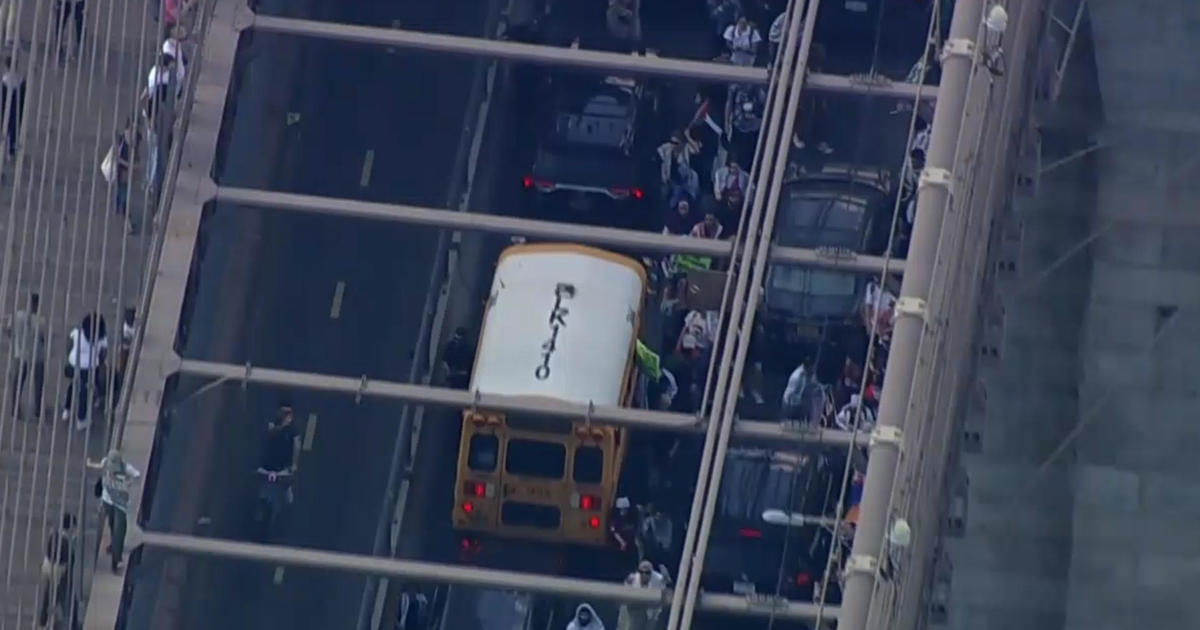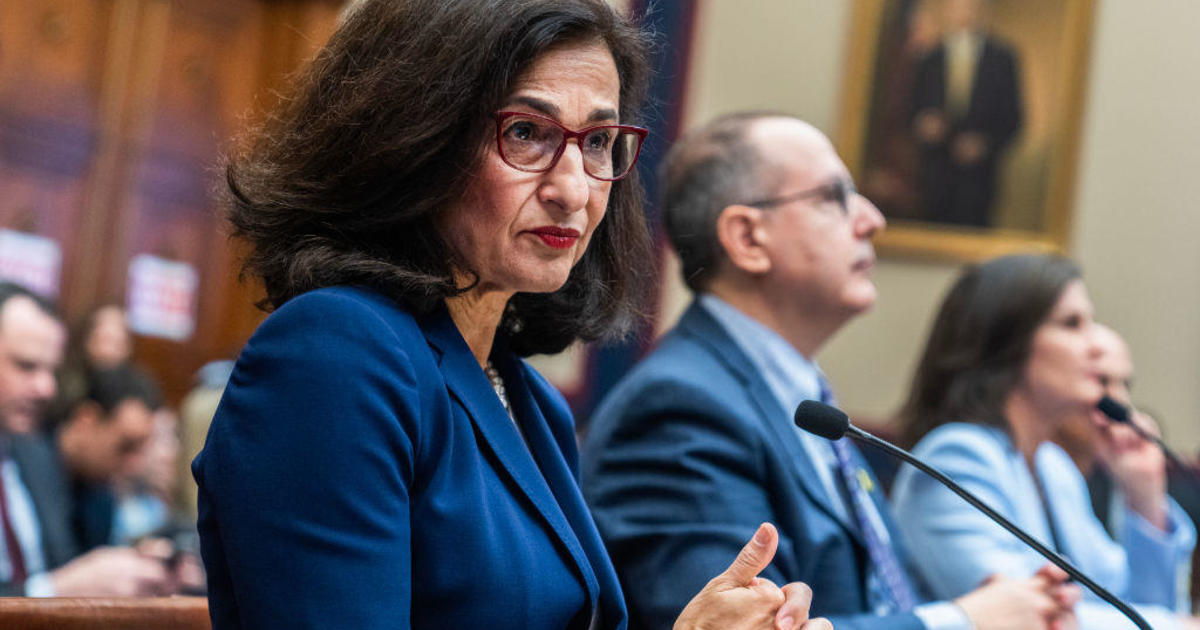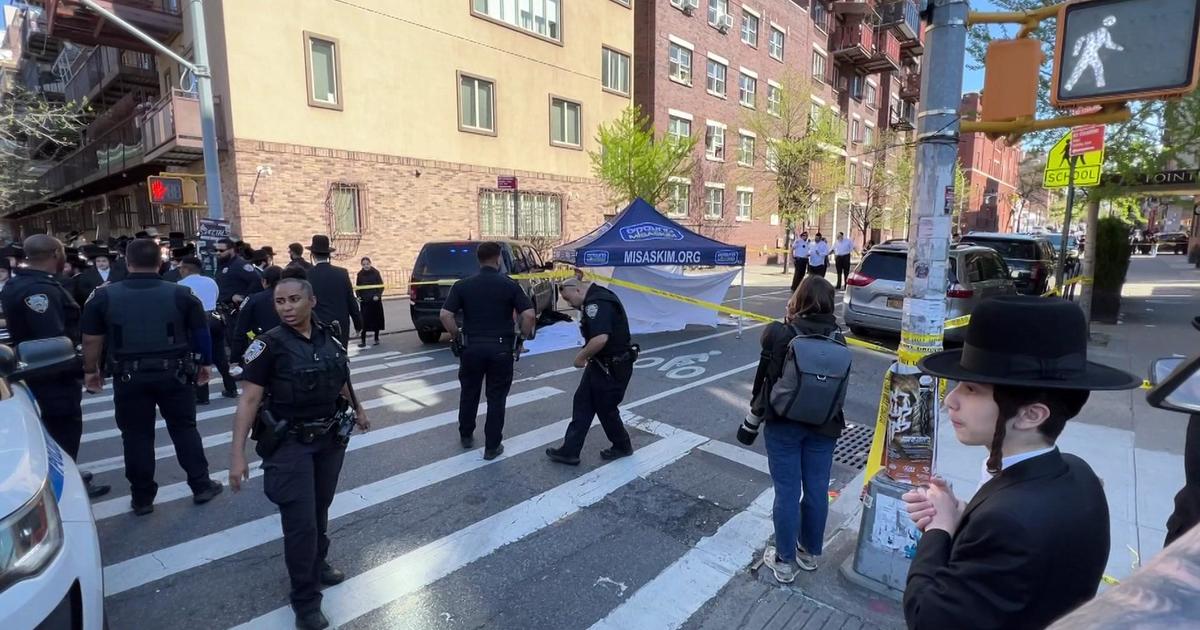Beach Reads: 'Children Of The Jacaranda Tree' By Sahar Delijani
NEW YORK (CBSNewYork) - Our latest Beach Reads entry is from Sahar Delijani and it's called "Children of the Jacaranda Tree."
It looks at post-revolutionary Iran in the early 1980s and follows the children of the political activists who were jailed.
WCBS 880's Pat Farnack spoke with Delijani right after Iran's recent elections and she started the interview by asking her whether she's hopeful that the election of a moderate will bring change to her country.
Beach Reads: 'Children Of The Jacaranda Tree' By Sahar Delijani
SD: It's a very good sign, I think. Especially, more importantly, because it means that people of Iran have not lost hope. Because I always say that in Iran hope never dies. I always said that and I'm really, really happy that it was confirmed because people want things to change. After what happened in 2009 and the rigged elections, they still went in millions to tell the world and to tell the regime that this is not what they want. And, you know, it was pretty successful.
PF: Are you hopeful that this could mean a big change for your country?
SD: Well, um, this particular election? No. I don't think there will be many big changes, I mean structural changes. But I do think that every [election] when the reformists win, there are a few changes that could lead to other big changes, you know? So, I mean, there are all these small steps that Iran is taking. Every small steps count because every small step could lead to a bigger step. And that is why I'm hopeful. And I think the Iranian people are too.
LINK: Sahar Delijani's Website
PF: Given your own history, Sahar, you were born in Iran in prison, were you not? This book must have been burning inside of you all these years. Was it?
SD: I was born in Iran. My mom was pregnant with me when she was arrested. The thing about this book is actually that it was so much part of me, all these stories were so much part of me, that I wasn't even aware of them. When I first started writing, I didn't write about these stories, I just wrote about other things. And then at a certain point I started writing short stories to be able to get them published and go from there in my writing career. And I realized every time I wrote, I kept going back to the same theme which was this theme of the imprisonment and the executions and that's how, almost subconsciously, that I realized that there was this obsession burning inside me that I wasn't even aware of and that's when I realized that these are the stories I need to tell - the stories of my family and their friends. It's all about post-revolutionary Iran. So the first part of the book is from 1983 when there were mass arrests of all political activists and at that point, Iran turned into a dictatorship because they were tolerated before those very few years of post-revolution. And then in 1988, most of those prisoners were still in prison, for example, my parents were released, fortunately, but my uncle wasn't in 1988, which was the last year of the Iran and Iraq war. And thousands of them were executed in one summer alone. And we still don't know how many of them because they were buried in mass graves and they are still there. But the number goes anywhere from 3,000 to 4,000 to 12,000. And that's the part of Iranian history in the first half of the book that I focus on. And the second half is about the children who were born there. The children of those activists who were born in that period and their interpretation of the events later on, 30 years later.
PF: The title really provokes curiosity. The jacaranda tree is very exotic. It has all those lush flowers. Was there any reason that you chose that?
SD: Yes. Yes, it's actually exotic for me too because jacaranda trees are not common in Iran because they are tropical trees and they don't exist in Tehran, but my grandmother, I don't know where she had seen it. She wanted one, she planted one, but it never grew because it couldn't in that climate. But for me, later on, when I started writing for the book... I kept remembering that tree and it was symbolic... of the Iranian revolution. How there was so much desire behind it and so much hope and it didn't turn out to be, it didn't grow, in a way, just like my grandmother's tree, a jacaranda tree. So I decided to title it that, so "Children of the Jacaranda Tree" are children of the revolution, basically.
PF: What are you hoping readers will take away from your book?
SD: Well, two main things. One is that I hope my readers will understand that in every part of the world there is a struggle for justice and for freedom and for democracy. And all this struggle is always the same. The dictatorships work in the same exact way no matter where they are. And people all fight, you know, in the same way. People have the same doubts, same dreams, same hopes. That's one thing. And the second thing is that I want people to understand, you know, that in Iran, specifically in Iran, is a country of fighters, not a country of just submissive people who put up with things. I think, sometimes, they have that image of us in the media that just once in a while all these bearded men come and sort of rule over us and it's not true. Iran's been fighting for more than even 30 years, even before the revolution, for democracy and I wanted people to know that, that the fight, you know, is going on in Iran and it's very important to be aware of it and pay attention to it.
PF: Sahar, are you a citizen now or do you ever foresee the day when you would go back to Iran?
SD: Well I am a citizen. I have double citizenship. Yes I do. You know, I always went back to Iran quite often before the publication of the book. For now, I'll have to wait and see for the reception of it. I don't think the government will be very happy with the book although I don't think it's a political book, but it is about a political matter that they have never publicly admitted, especially to the numbers of the executed, but yes, that is my biggest hope. My biggest hope is to one day go and do a reading in Iran. That would be just beautiful.
You May Also Be Interested In These Stories



